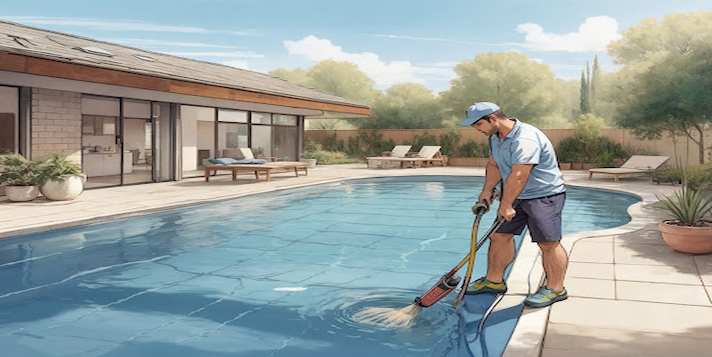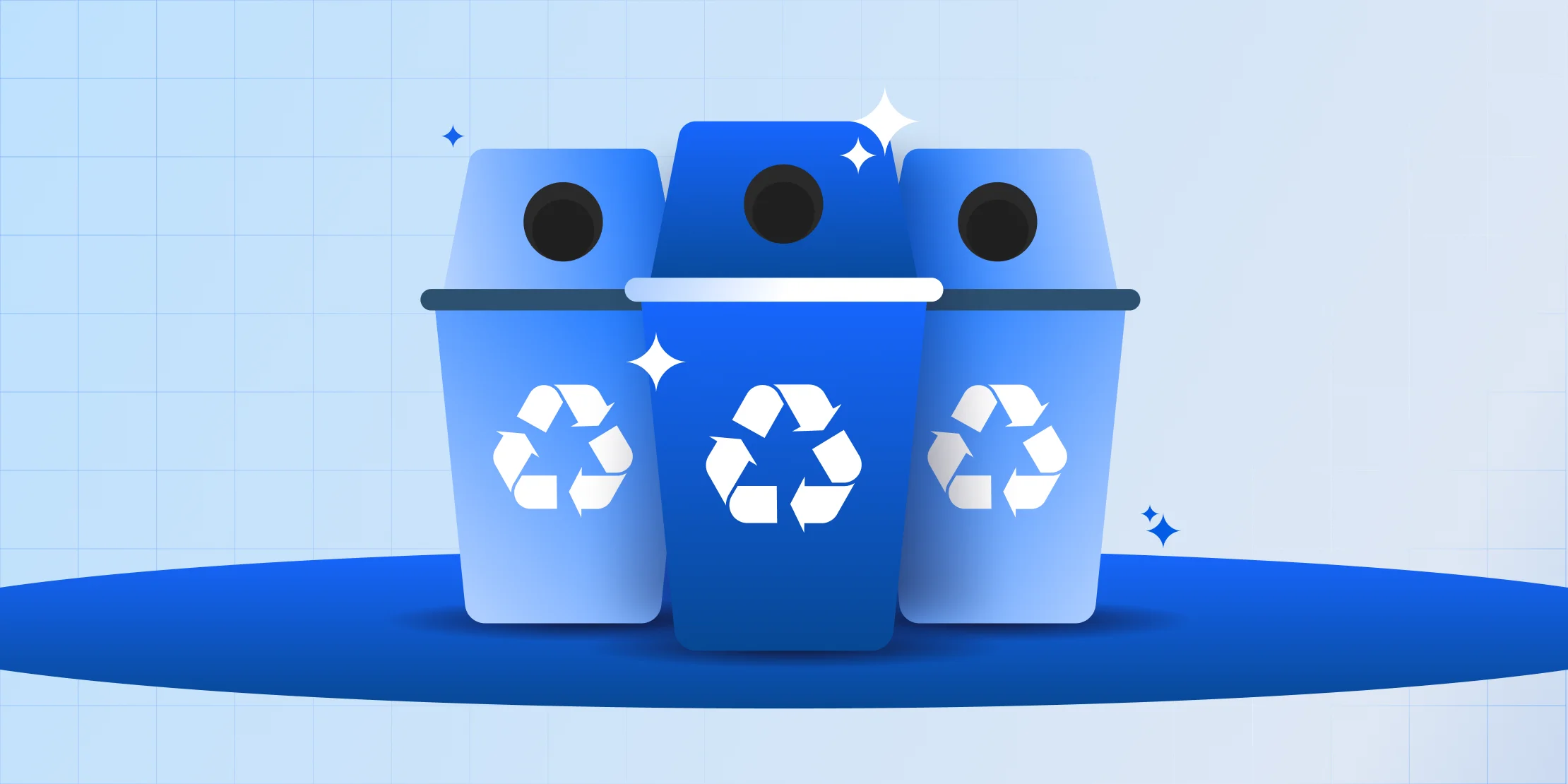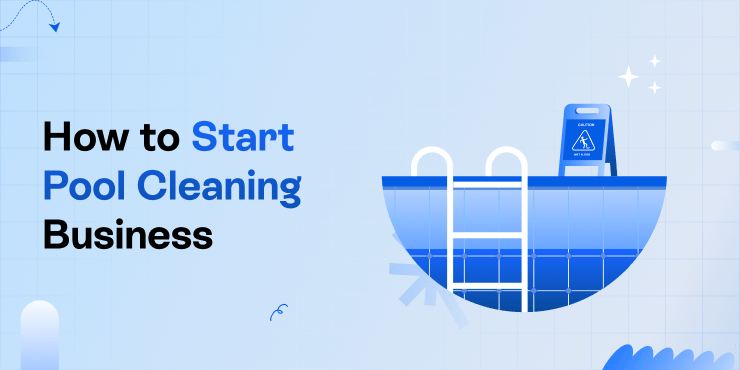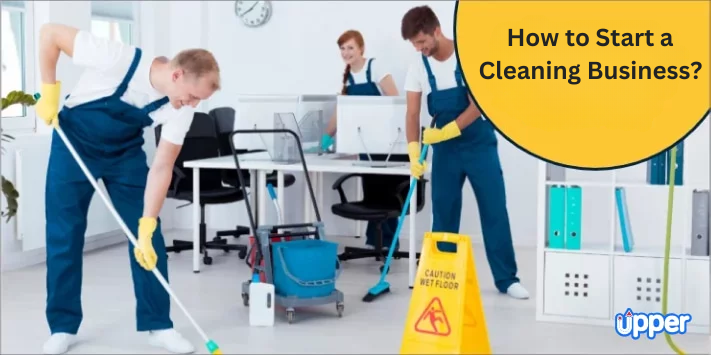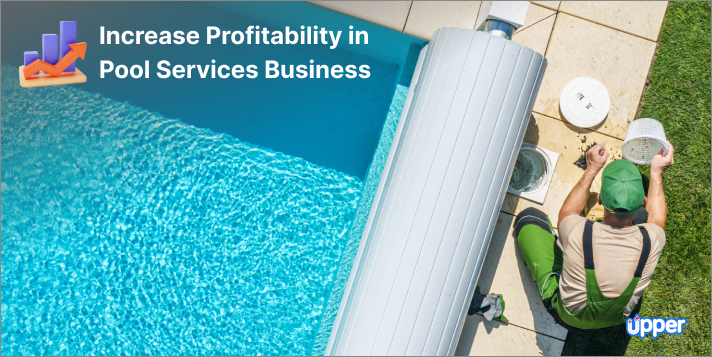 Key Takeaways:
Key Takeaways:
- Creating an efficient schedule for pool maintenance services is key to enhancing operational efficiency and customer satisfaction.
- By implementing the best practices shared in this article, such as prioritizing tasks based on urgency or complexity, you can streamline your processes and deliver better service to your clients.
Welcome to the world of pool maintenance. If you’re new to this, it can seem like a daunting task. But don’t worry. With the right schedule and tools, maintaining your pool can be as easy as a summer breeze. Whether you’re an independent technician or managing a pool service business, creating an effective maintenance schedule is key to keeping those pools sparkling clean.
Why is it so important? Well, a well-planned schedule not only ensures regular upkeep but also optimizes your time and resources. It helps in prioritizing tasks, allocating resources effectively, and providing timely service – all crucial for happy customers and successful business operations. Plus, with advancements in technology like route optimization software, scheduling has become more efficient than ever before.
In this guide titled “The Perfect Pool Maintenance Schedule Guide for Beginners in 2025”, we will walk you through the process of creating an optimal pool maintenance schedule. We’ll cover everything from understanding the importance of regular pool maintenance to leveraging technology for planning routes and dispatching drivers. So let’s jump right into it.
Forget Spaghetti Routes, Optimize Routes for Your Entire Team with Upper
Start a 7-Day Free Trial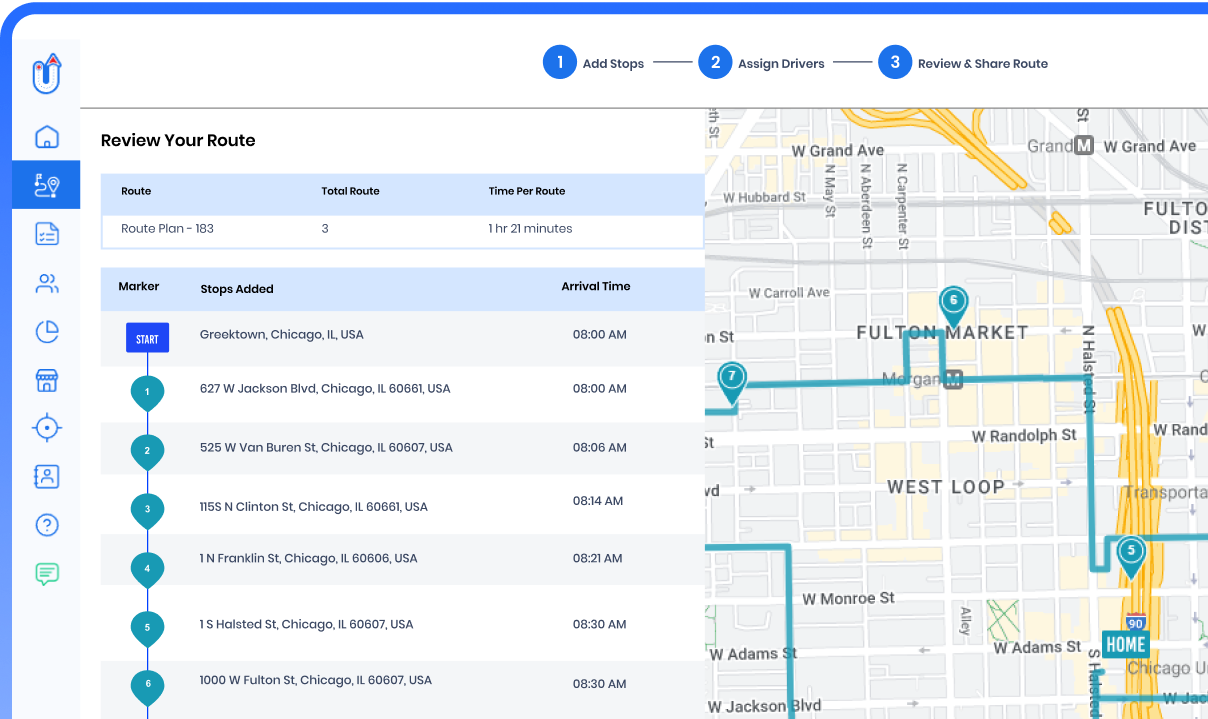
Table of Content
- Why is Regular Pool Maintenance Important?
- What happens if you don’t maintain your pool?
- How can regular maintenance extend the life of your pool?
- What Does a Basic Pool Maintenance Schedule Look Like?
- What tasks should be done daily?
- What tasks should be done weekly or bi-weekly?
- How to Properly Clean Your Pool
- Understanding Pool Chemicals
- How often should you test your pool’s chemistry?
- What are ideal levels for different chemicals in your pool?
- Tips for Maintaining Your Swimming Pool Equipment
- Maintaining Pools in Different Seasons
- How to maintain your pool during the summer?
- How to winterize your pool?
- When Should You Call a Professional for Pool Maintenance?
- Conclusion
Why is Regular Pool Maintenance Important?
1. Water cleanliness
Regular pool maintenance is as essential as regular vehicle servicing. It’s a non-negotiable task that ensures the health and longevity of your pool. Just like you wouldn’t want to drive a car with faulty brakes, you wouldn’t want to swim in a pool teeming with bacteria or algae. Regular maintenance helps keep your pool clean, safe, and inviting.
2. Better skin care
Neglecting this crucial task can lead to several issues that not only affect the quality of your swimming experience but also hit hard on your wallet. For instance, unbalanced water chemistry can cause skin irritations and eye infections for swimmers. On top of that, it can damage the pool equipment and surfaces leading to costly repairs.
What happens if you don’t maintain your pool?
If you don’t maintain your pool regularly, it becomes a breeding ground for harmful microorganisms such as algae and bacteria. These organisms multiply rapidly in stagnant water causing greenish discoloration – an unsightly sight no one wants to see in their backyard oasis.
Moreover, neglecting regular maintenance could lead to equipment failure due to clogged filters or corroded parts. This could result in even more expensive repairs or replacements down the line. The water may also become cloudy or develop an unpleasant odor due to chemical imbalances making it unfit for swimming.
Get automated pool maintenance and scheduling solutions. Check detailed insights on pool maintenance business software and see what magic it does.
How can regular maintenance extend the life of your pool?
Consistent care goes a long way in preventing major issues from cropping up unexpectedly. Think about it: would you rather spend 30 minutes every week skimming leaves off the surface or shell out thousands of dollars replacing damaged pumps?
By keeping tabs on things like pH levels, chlorine content, filter condition etc., you’re essentially nipping potential problems in the bud before they escalate into bigger ones requiring professional intervention.
What Does a Basic Pool Maintenance Schedule Look Like?
A basic pool maintenance schedule is the backbone of keeping your swimming oasis clean, clear, and ready for fun. It’s a structured plan that outlines daily, weekly, monthly, and annual tasks necessary to maintain optimal water quality and equipment performance.
| Task Frequency | Tasks |
|---|---|
| Daily Tasks | Weekly or Bi-Weekly Tasks |
| Skimming debris off the surface and checking water levels. | Testing the water chemistry, vacuuming the pool floor, cleaning filters. |
Daily tasks are pretty straightforward but crucial for maintaining an inviting pool environment. Skimming leaves and other floating debris off the surface prevents them from sinking to the bottom where they can decompose and cause problems with your water chemistry. Checking water levels ensures there’s enough volume for proper filtration while preventing unnecessary strain on your pump system.
What tasks should be done daily?
- Daily tasks primarily focus on cleanliness and monitoring water levels.
- You should also check your pool’s pH level every day to ensure it stays within the ideal range of 7.2-7.6 – this helps keep your sanitizer effective in killing bacteria and algae.
- An important daily task is inspecting your pool equipment for any visible signs of wear or damage – this includes pumps, filters, heaters, chlorinators etc., as well as ladders or diving boards if you have them installed in your pool.
What tasks should be done weekly or bi-weekly?
- Weekly or bi-weekly tasks are more intensive than daily ones but equally critical in maintaining a healthy swimming environment.
- Testing water chemistry tops this list – it involves checking chlorine levels (1-3 ppm), total alkalinity (80-120 ppm), calcium hardness (200-400 ppm) among others.
- Vacuuming is another key task done at least once a week. It removes debris that has sunk to the bottom of your pool, preventing it from decomposing and causing water chemistry imbalances.
- Cleaning filters is also crucial – clogged or dirty filters can’t effectively filter out contaminants, leading to cloudy water and potential health risks.
In the grand scheme of things, maintaining a pool might seem like a lot of work. But with a well-structured schedule in place, you’ll find it’s quite manageable. And remember, these tasks are not just about keeping your pool clean – they’re about ensuring safety and prolonging the lifespan of your equipment too. Now that we’ve covered the basics of a maintenance schedule, let’s move on to another important aspect: how to properly clean your pool.
How to Properly Clean Your Pool
Cleaning your pool is a vital part of maintaining its longevity and ensuring it’s safe for use. It might seem like a daunting task, but with the right steps, you can keep your pool sparkling clean all year round.
- The first step in cleaning your pool is skimming off any leaves or debris floating on the surface. This should be done daily or as often as needed.
- After skimming, the second step involves brushing the sides of the pool to remove any algae build-up. Using a long-handled brush designed for pools, start at the shallow end and work your way towards the deep end. Make sure to pay special attention to corners and crevices where algae tend to accumulate.
- Next comes vacuuming -the third step in our process. A manual pool vacuum consists of a vacuum head attached to a telepole with a hose that connects to the special fitting in the skimmer box. As you slowly move the vacuum across the surface of the pool floor, water is drawn out through the hose and then returns after passing through filtration.
- Finally, we have the fourth step, which is checking and adjusting chemical levels in your pool water. This includes pH level, alkalinity, chlorine level among others which are essential for keeping bacteria and algae at bay while ensuring clear and healthy water.
Remember that each swimming pool has unique needs based on factors such as size, location (indoor/outdoor), usage frequency etc., so what works best for one may not necessarily apply universally. But don’t worry because once you get into the rhythm of regular maintenance tasks like these ones mentioned above it becomes much easier over time.
Now that we’ve covered how to properly clean your swimming pool let’s move onto understanding more about those chemicals used during the last stage cleaning process.
Understanding Pool Chemicals
When it comes to maintaining a swimming pool, understanding the chemicals involved is paramount. Pools rely on a delicate balance of several key chemicals to maintain cleanliness and safety. Chlorine is perhaps the most well-known, acting as a disinfectant to kill bacteria and other harmful organisms. Bromine serves a similar purpose but is more often used in hot tubs due to its stability at higher temperatures.
Calcium hardness and alkalinity are also essential components of your pool’s chemistry. The former helps prevent plaster damage while the latter keeps pH levels stable. Stabilizers like cyanuric acid protect chlorine from being quickly depleted by sunlight, extending its effectiveness.
How often should you test your pool’s chemistry?
The frequency with which you should test your pool’s chemistry depends on usage and environmental factors. However, as a rule of thumb, experts recommend testing at least once per week during peak usage times – that’s 52 tests annually. This ensures any imbalances are caught early before they can cause significant issues.
During off-peak seasons or when the pool is not in use, testing can be reduced to once every two weeks or even monthly. Remember: regular testing allows for timely adjustments and helps maintain optimal chemical balance for safe swimming conditions.
What are ideal levels for different chemicals in your pool?
Achieving ideal chemical levels in your pool creates an environment that’s both safe for swimmers and conducive for equipment longevity. For instance, pH levels should ideally sit between 7.4 and 7.6 – this range aligns with our body’s natural pH level making it comfortable for swimmers while also maximizing chlorine effectiveness.
Chlorine concentration should be maintained between 1-3 parts per million (ppm) while calcium hardness should fall within 200-400 ppm depending on whether your pool has a plaster or vinyl liner respectively.
Tips for Maintaining Your Swimming Pool Equipment
Maintaining your swimming pool equipment is a vital part of ensuring the longevity and functionality of your pool. From pumps to heaters, ladders, and more, each piece of equipment plays a crucial role in keeping your pool clean, safe, and enjoyable. Regular maintenance can prevent costly repairs down the line and keep everything running smoothly.
- Clean pump on a weekly basis as it keeps water moving through filters to remove debris and distribute chemicals evenly.
- Give special attention to heaters as they are important pieces of equipment that need to be inspected.
- Do regular checks for maintaining safety with Ladders, slides, diving boards, and other accessories.
Remember that maintaining your swimming pool equipment isn’t just about prolonging its lifespan – it’s also about ensuring the safety and enjoyment of everyone who uses the pool. By taking care of these key pieces of equipment regularly, you’ll save money on potential repairs or replacements in the future while providing an optimal swimming environment for all users.
Now let’s move on to how different seasons can affect your pool maintenance routine.
Maintaining Pools in Different Seasons
Pool maintenance is not a one-size-fits-all task. It varies significantly with the changing seasons, each bringing its unique set of challenges. Summer sees an increase in pool usage, leading to more wear and tear and a higher demand for cleaning and chemical balancing. On the other hand, winter calls for winterizing procedures to protect your pool from freezing temperatures.
How to maintain your pool during the summer?
During summer, pools become a hub of activity. This increased usage can lead to imbalances in water chemistry and clarity issues. Regular skimming and vacuuming are essential to keep debris at bay. Testing water chemistry multiple times per week will help maintain optimal pH levels, ensuring a safe swimming environment. Shock treatments may be necessary after heavy use or significant rainfall events.
In addition to these tasks, it’s important to regularly check your pool equipment during summer months. Filters should be cleaned or replaced as needed, while pumps might require more frequent inspections due to increased workloads.
How to winterize your pool?
As summer fades into fall, it’s time to start thinking about winterizing your pool – a critical step in maintaining its longevity. Begin by balancing the water chemistry; this prevents potential damage caused by freezing temperatures.
Next comes lowering the water level below the skimmer line and draining all plumbing lines to prevent them from freezing and cracking over winter months. Use air pillows as buffers against ice expansion within the pool.
Lastly, cover your pool securely using a high-quality winter cover that keeps out leaves and other debris while preventing algae growth due to lack of sunlight exposure.
These seasonal maintenance tips ensure that you’re ready for any weather condition thrown your way. But remember – there are times when professional help might be necessary.
When Should You Call a Professional for Pool Maintenance?
There are instances when maintaining your pool becomes more than just skimming off leaves and debris. Sometimes, the task requires professional intervention. For instance, if you notice that your pool’s water is consistently cloudy despite regular cleaning and balancing of chemicals, it might be time to call in the experts. This could indicate an issue with your filtration system or a deeper chemical imbalance that needs professional attention.
Another scenario where you might need a pro is when there’s visible damage to the pool structure itself. Cracks in the pool liner or concrete can lead to leaks and other serious issues if not addressed promptly. A professional will have the necessary tools and expertise to repair these damages effectively without causing further harm.
Moreover, if you’re dealing with persistent algae growth even after shock treatments and algaecide applications, it may be best to consult a professional. Algae can quickly take over a pool if not properly controlled, making swimming unsafe due to slippery surfaces and poor visibility underwater.
Lastly, consider calling in professionals for routine maintenance tasks like opening or closing your pool for the season. These processes involve several steps including adjusting water levels, treating water with specific chemicals, inspecting equipment for any potential issues among others – all of which can be efficiently handled by trained professionals.
Conclusion
So, our journey from understanding the vital importance of regular pool maintenance to the finer details of properly cleaning the pool was informative. It gave us a clear picture of why to schedule maintenance service in different seasons. Our comprehensive guide states that it’s not all about cleaning the pool, but also ensuring your family’s good health. All in all, it’s clear that your pool maintenance schedule can be treated as your shortcut to business success.
In this journey, route optimization software like Upper can play a really important role by reducing your work and boosting efficiency. With such advanced software, you can schedule maintenance service in advance and never miss out on keeping your pool clean and safe. Start with your 7 days free trial to know more about Upper.
